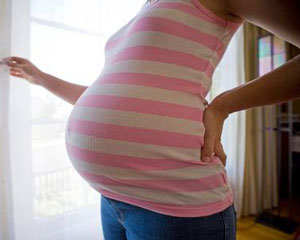
WHEN HIV-positive Martha Tholanah chose not to breastfeed her daughter, she was admonished by relatives, friends and even some health service providers.
REPORT BY PHYLLIS MBANJE
Others openly told Tholanah, a coordinator for International Community of Women Living with HIV (ICW) Zimbabwe Chapter, that failing to breastfeed was not “normal” in local culture.
“I was discouraged from many quarters when I made my decision not to breast- feed,” she told Standardcommunity recently. “I faced ridicule from the hospital staff and even some relatives.”
Tholanah said it was very difficult to sustain the choice she had made designed to prevent mother-to-child transmission of HIV.
The Aids activist said she was shocked that even hospital staff also stigmatised her.
“Once the staff learnt I was not breastfeeding, they started blaming me for denying the baby her ‘rightful’ food,” she said.
Such is the nightmare that many HIV- positive women in Zimbabwe are going through in trying to keep their babies from being infected.
- Chamisa under fire over US$120K donation
- Mavhunga puts DeMbare into Chibuku quarterfinals
- Pension funds bet on Cabora Bassa oilfields
- Councils defy govt fire tender directive
Keep Reading
They are subjected to all sorts of derogatory remarks, and are literally forced to explain their choices.
As Zimbabwe commemorated the World Breastfeeding Week early this month, issues surrounding HIV-positive women and breastfeeding were once again brought to the fore.
While the World Health Organisation (WHO) has recommended that HIV-positive mothers can still breastfeed like any other woman, there are some who still choose to abstain totally.
The world body departed from its earlier position that HIV-positive women should not breastfeed at all, following research findings that proved that mothers or their infants could take anti-retroviral drugs throughout the period of breastfeeding and until the infant is one-year-old.
Health experts say in some cases, HIV-positive women have bowed to family pressure and breastfed their babies without medical advice.
Seke Rural Hospice director, Ruth Ngwerume said the issue required a lot of education and awareness within families and communities.
“Communities and affected families need to be educated on how to keep the babies safe. We, as an organisation, urge HIV-positive women to breastfeed exclusively but they may choose not to do that,” she said.
Ngwerume however said exclusive breastfeeding had its own challenges.
“There are other issues to be considered when a mother is breastfeeding exclusively. She needs a balanced diet for her to be able to produce enough milk for the baby,” she said.
Her organisation makes use of Prevention of Mother To Child Transmission (PMTCT) “champions”.
“These are men whom we have trained to raise awareness and even train their peers on issues surrounding PMTCT. They deal with subjects like stigma, nutrition and even counselling of HIV-positive couples who want to make informed decisions,” she said.
A nurse counsellor with Family Aids Caring Trust-Mutare said exclusive breastfeeding was more ideal.
“Those who are afraid of being stigmatised can actually go ahead and breastfeed, and avoid explaining many things to people,” she said. “The only challenge would be to avoid mixed feeding by giving the baby food other than breast milk. It takes a much disciplined mother who will not be tempted to offer the baby anything else other than her milk.”
She said mixed feeding was discouraged, as it would expose the babies to infection.
A Zimbabwe Demographic Health Survey (ZDHS) for 2010-2011 noted that breastfeeding was still a challenge in this country, with only 6% of mothers exclusively breastfeeding their child in the first six months. Others openly told Tholanah, a coordinator for International Community of Women Living with HIV (ICW) Zimbabwe Chapter, that failing to breastfeed was not “normal” in local culture.
“I was discouraged from many quarters when I made my decision not to breast- feed,” she told Standardcommunity recently. “I faced ridicule from the hospital staff and even some relatives.”
Tholanah said it was very difficult to sustain the choice she had made designed to prevent mother-to-child transmission of HIV.
The Aids activist said she was shocked that even hospital staff also stigmatised her.
“Once the staff learnt I was not breastfeeding, they started blaming me for denying the baby her ‘rightful’ food,” she said.
Such is the nightmare that many HIV- positive women in Zimbabwe are going through in trying to keep their babies from being infected.
They are subjected to all sorts of derogatory remarks, and are literally forced to explain their choices.
As Zimbabwe commemorated the World Breastfeeding Week early this month, issues surrounding HIV-positive women and breastfeeding were once again brought to the fore.
While the World Health Organisation (WHO) has recommended that HIV-positive mothers can still breastfeed like any other woman, there are some who still choose to abstain totally.
The world body departed from its earlier position that HIV-positive women should not breastfeed at all, following research findings that proved that mothers or their infants could take anti-retroviral drugs throughout the period of breastfeeding and until the infant is one-year-old.
Health experts say in some cases, HIV-positive women have bowed to family pressure and breastfed their babies without medical advice.
Seke Rural Hospice director, Ruth Ngwerume said the issue required a lot of education and awareness within families and communities.
“Communities and affected families need to be educated on how to keep the babies safe. We, as an organisation, urge HIV-positive women to breastfeed exclusively but they may choose not to do that,” she said.
Ngwerume however said exclusive breastfeeding had its own challenges.
“There are other issues to be considered when a mother is breastfeeding exclusively. She needs a balanced diet for her to be able to produce enough milk for the baby,” she said.
Her organisation makes use of Prevention of Mother To Child Transmission (PMTCT) “champions”.
“These are men whom we have trained to raise awareness and even train their peers on issues surrounding PMTCT. They deal with subjects like stigma, nutrition and even counselling of HIV-positive couples who want to make informed decisions,” she said.
A nurse counsellor with Family Aids Caring Trust-Mutare said exclusive breastfeeding was more ideal.
“Those who are afraid of being stigmatised can actually go ahead and breastfeed, and avoid explaining many things to people,” she said. “The only challenge would be to avoid mixed feeding by giving the baby food other than breast milk. It takes a much disciplined mother who will not be tempted to offer the baby anything else other than her milk.”
She said mixed feeding was discouraged, as it would expose the babies to infection.
A Zimbabwe Demographic Health Survey (ZDHS) for 2010-2011 noted that breastfeeding was still a challenge in this country, with only 6% of mothers exclusively breastfeeding their child in the first six months.











